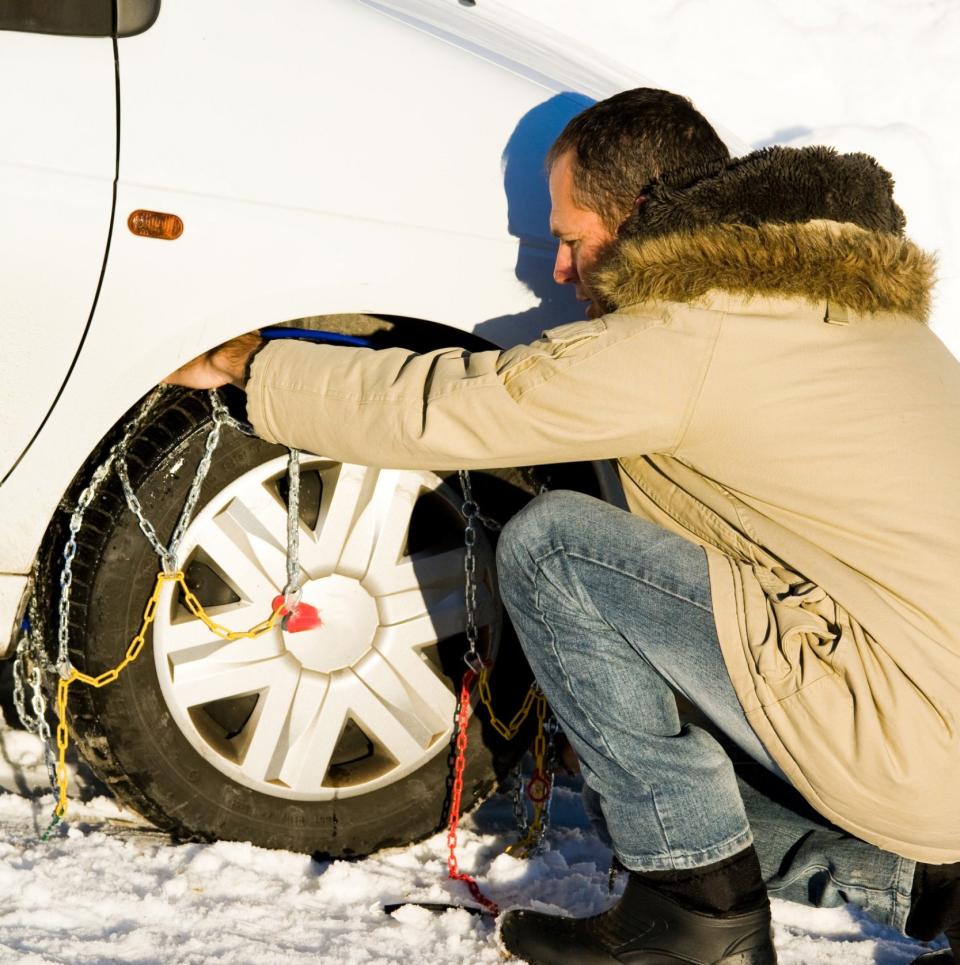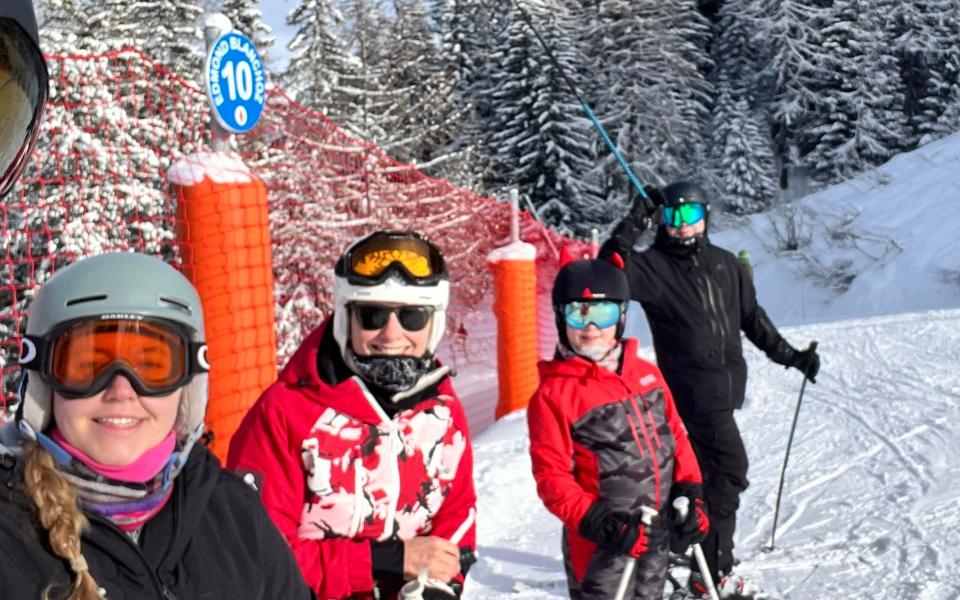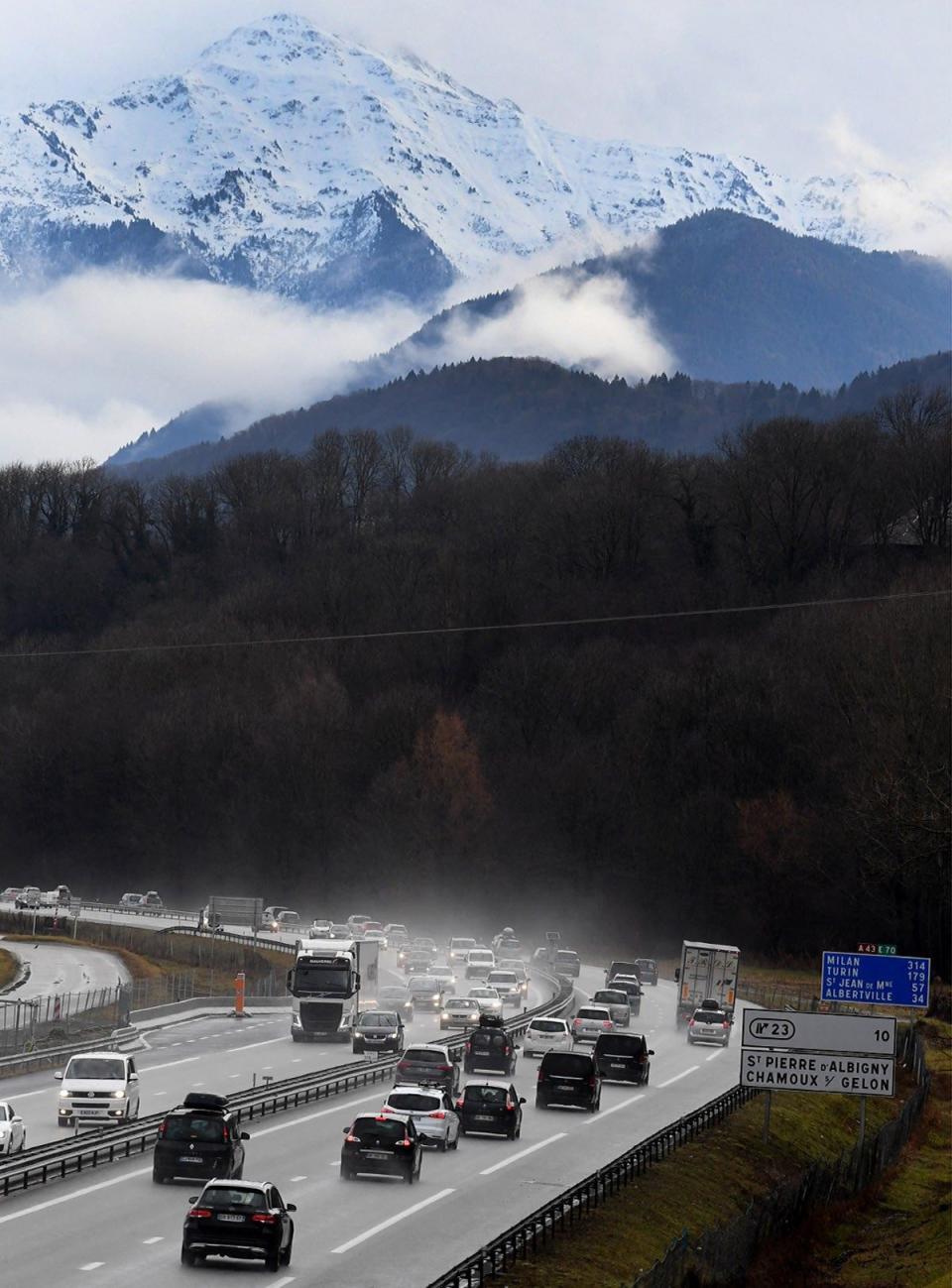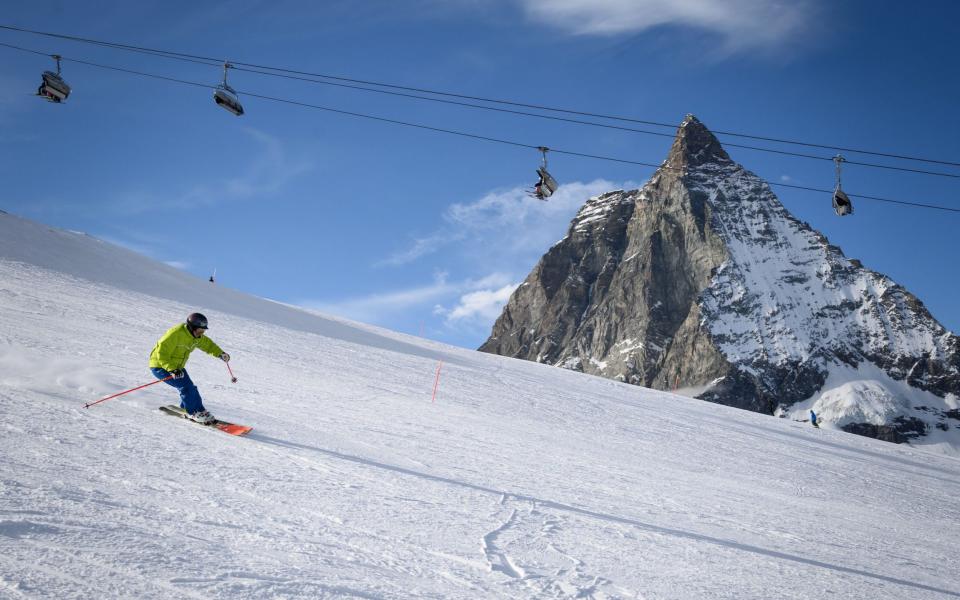Rare is the skier who has not sat bored and tired for hours in the back of a bus, minibus or taxi, stuck in a traffic jam on the way from an airport to a ski resort.
We’ve all done it, but with the summer holidays starting this weekend and French ski resorts still on red alert after protesting farmers blocked roads across the country, and snow falling in some areas, traffic could be at a record high.
“I’m not convinced the protests are all over yet – and a truckload of horse manure on a mountain road is too tempting an option for the region’s farmers,” said Angus Kinloch, director of Ski Line. “It is important that we warn skiers to expect delays if they go to the French Alps this week, often with young children.”
Apart from the threat of roadblocks, snow is currently falling in France, which is likely to exacerbate problems on the roads, increasing the risk of accidents and delays as motorists stop to repair snow chains. All this also adds to the cost of a transfer.
Long hours on the road, post-Brexit inflation in staff wages, insurance, fuel and vehicle maintenance mean the all-important journey from airport to holiday resort can cost more than flights.


Rich Smith is the director of transfer company Ski-lifts.com, which has been in business for 19 years. He explained: “The cost of airport transfers is directly related to distance and travel time. Ski areas are difficult to reach, with long distances and often poor weather and road conditions, which leads to long travel times.”
In France, school-aged children are given two weeks off for half the school year, with the country split into three zones each lasting a different fortnight, resulting in heavy traffic every Saturday in February and the first weekend in March. And it’s not just France – Interstate 70 in Colorado, United States, is often congested on weekends as skiers flee Denver for the mountains, and in Austria, where many resorts, including Iscghl and Kitzbuhel, are fed from one roadway from the highway and holiday resorts. The pressure is increasing now that Dutch, German and Austrian children all have the same amount of free time.
Yacht sales manager Richard Shead said he had a “13-hour transfer from hell” in 2017 when his family and two others – with seven children aged five to 12 – traveled to Les Menuires.
“It was New Year’s and we took an early flight to get to the resort early and left Geneva around 12:30 on a group transfer with Family Ski,” he said. “The bus was full and we took the usual route via Lake Annecy, but there was snow on the ground from a very heavy storm the night before. With diversions, driver breaks and long lines of cars stuck together, we pulled into the chalet around 3am, where the hosts tried to serve us a very burnt cottage pie.”
Mr Shead had the foresight to stock up on food and drink – although he admits toilets were a problem – and their driver plowed on (despite questions about the legality of this) while other coaches stopped, leaving guests stranded overnight in the sports halls of Albertville.
“It was so awful that one of the families we traveled with hasn’t skied since,” he said, adding: “We are now driving and staying overnight on the way down.”


A former transfer driver in Méribel, who wishes to remain anonymous, told the story The Telegraph: “Disasters happen, especially when there is only one way in or out. But all the reputable companies work together, with beehives on transfer days monitoring real-time traffic and alternative routes, flight delays and so on, so they generally have expert drivers and are on top of everything.”
Brexit, he says, has reduced the number of transfer companies and made finding drivers very difficult: “Transfer companies have a limited pool of drivers to choose from and hire less skilled drivers from Eastern Europe and Bulgaria, due to language and cultural differences in the region. in the field of road safety.”
Alison Roberts, a former bus driver, has been running Morzine and Back Transfers for 13 years. Before Brexit, it had a number of buses with sixteen seats, with British bus drivers. “They came over for four or five months and worked on French seasonal contracts. But after Brexit, obtaining their visas has become too cumbersome and expensive, so I sold my big buses and now only operate one small minibus that I drive myself.”
Roberts said resort accommodation has become difficult to find and expensive, and Switzerland also requires all staff to be paid Swiss rates when driving in Switzerland. The price of fuel has also doubled: its shared transfer price has risen from €25 per person to €48 per person, while private transfers, for up to eight passengers, have risen from €200 to €300.
There has always been a black market for resort transfers, where seasonal workers undermine established and insured businesses by providing lifts to finance their skiing activities. But these are not insured.
To combat price increases, Ski-lifts.com is offering more shared transfers this season. “This is a great option for customers as it offers door-to-door transfers at a lower price,” said Smith. “We have also introduced electric and hybrid ski transfers to offer our customers more sustainable travel options. We want to help our customers get to and from their ski area as safely and cost-effectively as possible.”
Staying away from popular French holiday resorts may be another option for families affected by traffic. Not only is traffic lighter in Italy and Spain, where half term holidays don’t clash with Britain, but transfers are cheaper too.
“Door-to-door transfers, when you are greeted at the airport, will always be the most popular and convenient,” says Ski Line’s Angus Kinloch. “We can organize this at a fraction of the cost of France, using local taxi companies in Italy, where the huge number of British skiers does not create this need for British-speaking bus drivers.”


How to combat transfer traffic and costs
Take the train
It’s cheaper and, if you’re dealing with weekend traffic, often faster. Many Swiss resorts have train stations directly within the resorts, as does St. Anton in Austria. But Italy, France and other parts of Austrian resorts can be less convenient, with a train journey sandwiched between two short taxi rides.
Go all-inclusive
A holiday with a transfer takes away the organizational pressure.
Avoid peak times
Radio DJ Chris Evans has complained to listeners about his 2am departure for a family ski holiday in Valmorel this six months, but he’s not so wrong. The peak time on mountain roads is between 11am and 3pm, while ring roads and highways on either side are also busy. Club Med offers trips on Sundays and includes transfers in the trip price.
Don’t skimp on safety
Always wear your seat belt and never be tempted by a cheap ride from someone you meet in a bar or from a friend of a friend. Insurance is vital in the mountains and although accidents, such as last February’s accident near Albertville between a taxi and a minibus, are thankfully rare, they do happen.
Don’t trust the navigation
If you drive yourself, beware that Google Maps will take you down a mountain road that is closed in winter.
To prepare
Have food, drinks, games, movies, music and patience (for the whole family) in case the worst happens.
Communicate with the driver
If someone is car sick, tell the driver and make sure he or she sits in the front seat. If a passenger starts vomiting, report it again so the driver can stop before it’s too late.
For more advice, see our ultimate guide to driving to the Alps.


Which ski resorts are closest to European airports?
-
Chamonix, France: Geneva (82 km), 1 hour
-
Kitzbühel, Austria: Innsbruck (97 km), 1 hour; Salzburg (72 km), 1 hour and 30 minutes; Munich (165 km), 1 hour and 45 minutes
-
Verbier, Switzerland: Sion (55 km), 1 hour; Geneva (161 km), 2 hours
-
St. Anton, Austria: Innsbruck (95 km), 65 minutes; Friedrichshafen (130 km), 1 hour and 30 minutes
-
Cervinia, Italy: Turin (121 km), 1 hour 30 minutes
-
Val Thorens, France: Chambéry (122 km), 1 hour 30 minutes; Geneva (200 km), 2 hours and 30 minutes
-
Les Arcs, France: Chambéry (121 km), 1 hour 45 minutes; Geneva (210 km), 2 hours and 30 minutes; Lyon Saint Exupery (204 km) 2 hours and 30 minutes
-
Cortina d’Ampezzo, Italy: Venice (150 km), 2 hours; Treviso (140 km), 2 hours
-
Val d’Isère, France: Chambéry (145 km), 2 hours; Geneva (223 km), 2 hours and 50 minutes
-
Zermatt, Switzerland: Geneva (230 km), 2 hours 40 minutes; Zurich (254 km), 3 hours and 35 minutes; Basel (227 km), 3 hours and 25 minutes
*Transfer time on average by car, without traffic.